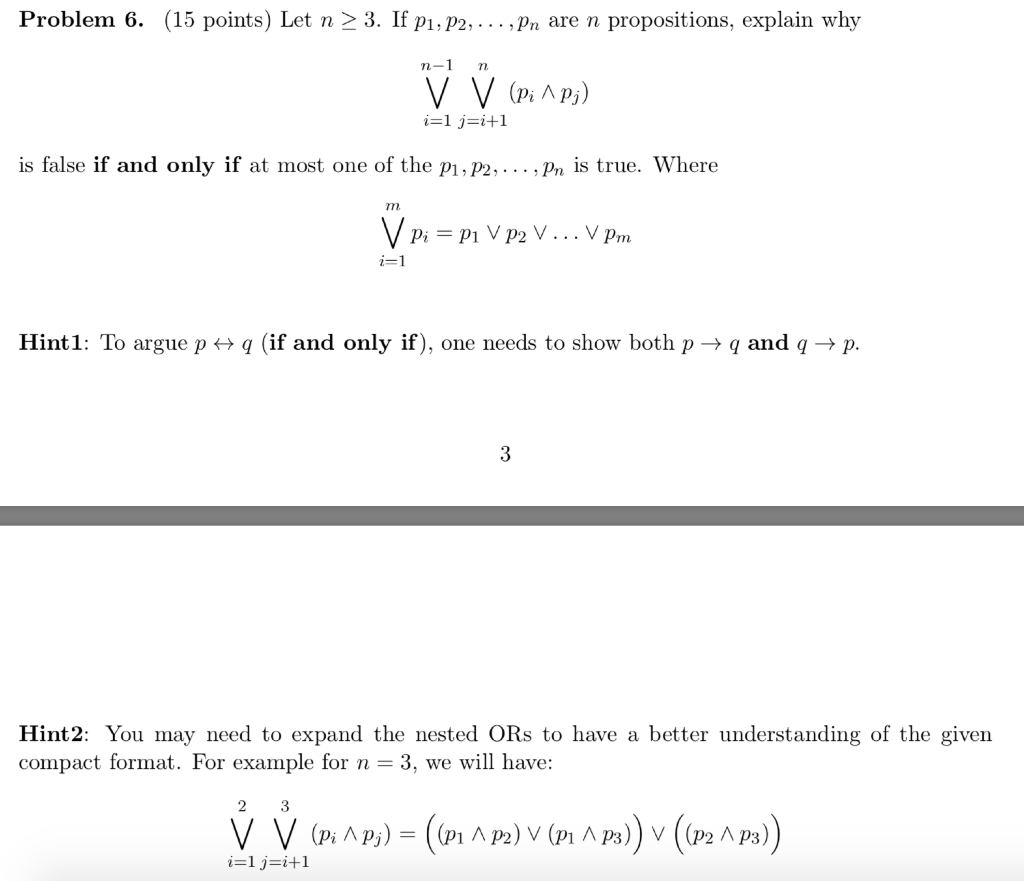Answered step by step
Verified Expert Solution
Question
1 Approved Answer
Problem 6. (15 points) Let n > 3. If P1, P2, ..., Pn are n propositions, explain why n-1 n V V (Pi^P;) i=1 j=i+1

Step by Step Solution
There are 3 Steps involved in it
Step: 1

Get Instant Access to Expert-Tailored Solutions
See step-by-step solutions with expert insights and AI powered tools for academic success
Step: 2

Step: 3

Ace Your Homework with AI
Get the answers you need in no time with our AI-driven, step-by-step assistance
Get Started

